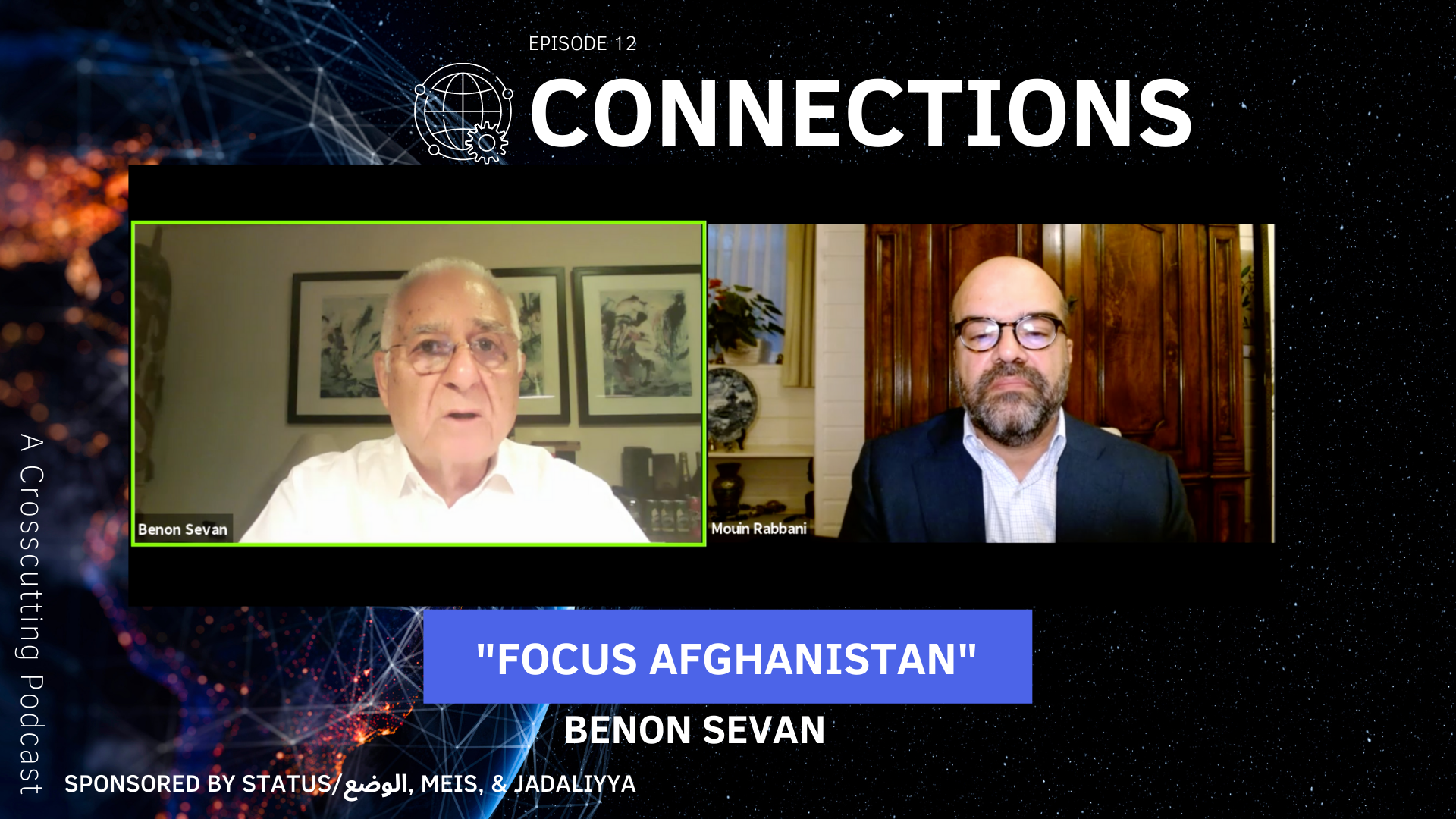Connections Episode 12
Focus Afghanistan
Mouin Rabbani Interviews Benon Sevan
On Wednesday, 18 August Jadaliyya co-editor Mouin Rabbani spoke with former United Nations Under-Secretary-General Benon Sevan, who served as UN envoy to Afghanistan and Pakistan from 1988-1992, about current developments in Afghanistan. This episode of Connections examines the US/NATO withdrawal from Afghanistan and the collapse of the government in Kabul, and how it compares with the Soviet withdrawal in 1989 and its aftermath.
Connections offers timely and informative interviews on current events and broader policy questions, as well as themes relevant to knowledge production. It combines journalism, analysis, and scholarship.
Guest
Benon V. Sevan joined the United Nations Secretariat in 1965. Over the next four decades he held numerous positions at UN headquarters and around the world, and carried out a variety of special political missions. In 1985 Sevan was dispatched by the UN Secretary-General to inquire into the situation of prisoners of war in the conflict between Iran and Iraq. In 1988 he was appointed Director and Senior Political Adviser to the Representative of the Secretary-General on the Settlement of the Situation Relating to Afghanistan, and was posted in Afghanistan and Pakistan, for monitoring the withdrawal of Soviet troops from Afghanistan. In 1989 he was appointed as the Secretary-General’s Personal Representative in Afghanistan and Pakistan, and after 1990 concurrently served as the Secretary-General’s Representative on the implementation of the Geneva Accords on Afghanistan. In 1992, he was appointed Special Envoy of the Secretary-General for issues related to missing persons in the Middle East. From 1997-2004 Sevan served as Executive Director, with the rank of Under-Secretary-General, of the UN Iraq Program, with responsibility for overall management, coordination, and supervision of the implementation of all United Nations humanitarian activities in Iraq.
Host
Mouin Rabbani has published and commented widely on Palestinian affairs, the Israeli-Palestinian conflict, and the contemporary Middle East. He was previously Senior Analyst Middle East and Special Advisor on Israel-Palestine with the International Crisis Group, and head of political affairs with the Office of the United Nations Special Envoy for Syria. He is Co-Editor of Jadaliyya Ezine.
Previous Episodes
Connections Podcast Episode 1: The Biden Administration and the Middle East with Noam Chomsky
Connections Podcast Episode 2: The Politics of Holy Cities with Mick Dumper and Maha Samman
Connections Podcast Episode 3: Apartheid Israel with Norman Finkelstein
Connections Podcast Episode 4: Israel-Palestine: A Turning Point? with Nathan Thrall
Connections Podcast Episode 5: Investigating Israel with Lori Allen
Connections Podcast Episode 6: The US Congress, Israel, and the Palestinians with Lara Friedman
Connections Podcast Episode 7: Palestine at the Crossroads with Hanan Ashrawi
Connections Podcast Episode 9: Lebanon in Crisis with Nadya Sbaiti
Connections Episode 10: Crisis in Tunisia with Houda Mzioudet
Connections Episode 11: A Planet in the Balance with Jeffrey D. Sachs
